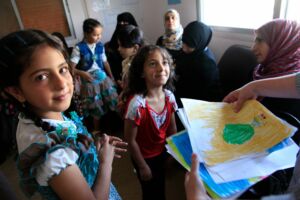News
Refugee children turn out to be adults
This article is more than 10 years old.
Numbers of adult asylum-seekers claiming to be children skyrockets

No question here, but sometimes it’s hard to tell the age of a refugee (Photo: Magnu Manske)
It is far easier for asylum seekers to get into Denmark if they are under 18 years old. The number of unaccompanied refugee children looking to enter the country set a record last year, but recent tests have revealed that 72 percent of those claiming to be children were in fact over 18.
Immigration authorities had 282 refugees take a series of age assessment tests where doctors rated their age by examining teeth, bones and genitals. Nearly three out of four of the refugees examined – 203 out of 282 – were determined to be adults.
‘When you find so many cheating, so you should test more,” MP Peter Skaarup told Metroxpress newspaper. “There should be consequences for their chance to get asylum.”
The number of unaccompanied refugee children has grown dramatically from 282 in 2011 to 812 last year.
Hard to judge
The legal council Retslægerådet ruled in 2011 that a person’s age may be determined within one year’s accuracy by a medical examination but that other criteria should also be used.
“When testing the age of an asylum seeker, bones and teeth can be examined with x-rays, and their physical appearance can also be examined,” said Bent Ottesen, Retslægerådet chairperson. “Such a test will always have a certain element of inaccuracy and should, if possible, not stand alone.”
READ MORE: Denmark falling short in children’s rights
SF spokesperson Jonas Dahl thinks the benefit of any doubt should go to the refugees.
“If you are not 100 percent sure, they should not be held to any test, he said.










































